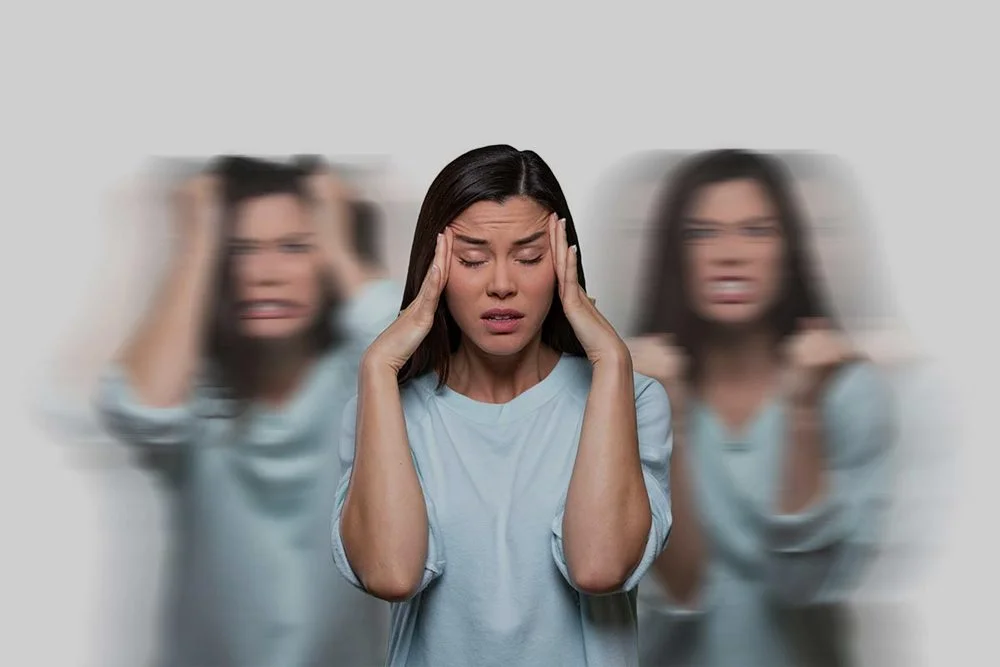Top Stories
- Know Everything About Nipah Virus, Which Is Back In Kerala Again
- Kevin Porter Jr Arrested On His Girlfriend’s Assault Charge
- Market Change Overnight - Know The 8 Things That Did It
- Who Are Alba Baptista And Chris Evans Married On The Weekend?
- Disrupted India vs Pakistan Asia Cup 2023 Match on Reserve Day
- 10 Common Foods That Contain No Calories or Are Very Low in Calories
- Men’s Styling Tips - Know the 9 Common Style Mistakes to Avoid
- Coco Gauff Beats Karoline Muchova and Reaches the US Open Final
- Danny Masterson Gets Life Sentence of 30 Years for Two Rapes
- Experience A Splendid Vacation in Kashmir with These 15 Gorgeous Sights
- India
- Saturday , July 27, 2024
- Last Published Sep 12, 2023, 6:48:32 PM

Bipolar Disorder: A Mental Illness Of Extreme Mood Shifts
Bipolar disorder is a mental illness in which a person experiences symptoms of depression and mania at the same time. The person will exhibit extreme mood shifts, due to which he/she might have problems in managing daily life activities such as work, school, or even maintaining a relationship. There is still no cure, but there are many treatments available for treating patients with bipolar disorder, also known as manic depression.
Here Are Some Facts You Must Know About Bipolar Disorder
- Bipolar disorder is not a rare mental illness and affects about 40 to 50 million people worldwide.
- The average age when people start showing the symptoms of bipolar disorder is 25 years old.
- Bipolar disorder can affect women during their pregnancy as changes in hormones can trigger some bipolar symptoms in a woman.
- Manic depression does not affect only adults but children as well. It is often challenging to detect bipolar disorder in children, and it can go unnoticed, which can later become dangerous.
- There are three kinds of bipolar disorder - Bipolar I disorder, bipolar II disorder and cyclothymic disorder and there are different kinds of symptoms for each type.
- Though bipolar disease is quite common, it is often difficult to diagnose it.
- A high maniac episode can even last for several days or weeks.
- The intensity of mood shifts is different for everyone. While some might experience it several times a year, others might experience it rarely.
Symptoms Of Bipolar Disorder
The symptoms of manic depression can be categorized into two types: The highs (mania) and the lows (depression)
The highs (manic episodes)
- Excessive excitement and hopefulness
- Rapid speech and poor concentration levels
- High urge of being sexually active
- Drug and alcohol abuse
- Impulsiveness and restlessness
- Less need of sleep and loss of appetite
The lows (Depression episodes)
- Deep sadness and loss of energy
- Suicidal thoughts or attempting suicide
- Inability to feel happiness or pleasure
- Lack of interest in every activity they once liked
- Too little or too much sleep
- Forgetfulness, irritability and poor concentration levels
Bipolar Disorder Treatment
There are several treatments available to treat bipolar disorderMedications
There are medications available to deal with the uncertainty of bipolar disorder episodes, such as mood stabilizers, antipsychotics, antidepressant-antipsychotics and anti-anxiety medications. Note: It is advisable to consult your doctor before taking any medication.Psychotherapy
Psychotherapy is a kind of talk therapy and the most recommended treatment for treating bipolar disorder. There are mainly two types of psychotherapy:Cognitive Behavioral Therapy
This type of therapy includes talking to your therapist about your habits, negative triggers, and thoughts. This type of therapy helps a patient address his/her problems and helps them develop positive coping strategies.Interpersonal and Social Rhythm Therapy
This type of therapy focuses on maintaining your daily habits such as sleeping, eating and exercising. The idea is to have a routine for everything to keep your mood shifts in control.Living With Bipolar Disorder
Since bipolar disorder or manic depression is a chronic mental illness, a patient will have to cope and live with it for all his life. However, it doesn't mean that people who have bipolar disorder can't live a normal and happy life; proper treatment through medications and regular therapies can help them cope with the symptoms. It is advisable to seek the help of a psychiatrist or psychologist if medications are not helping. The next best thing is to find a supportive community and finding people who are also suffering from bipolar disorder to resonate with the fact that someone else is going through the same problems you are going through. Finding a supportive community will ensure that you have people you can rely on.Disclaimer - The texts with tips or advice mentioned here are only for generic information, but not for a substitute of medical advice. Before applying any advice or tips, you should consult a respective doctor or expert. ATT is not responsible if you have any bad impacts on your health.












